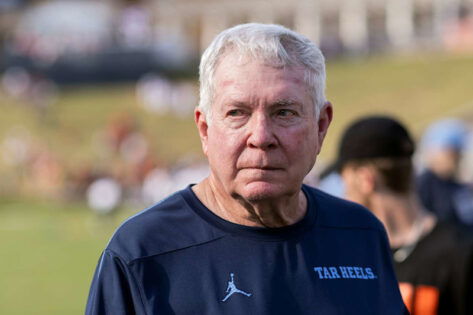For decades, it was the worst-kept secret in college football: star players were moving the needle, but not the money. The NIL rights in 2021 finally changed that, reshaping the entire landscape of college athletics. Before that, the tag of ‘amateurism’ endured as even the biggest names earned minuscule stipends. But even in that environment, an underground ecosystem of NIL-like payments was going on, at least for some star players. Remember the Reggie Bush scandal? It was alleged that the USC running back received more than $100,000 and a 1996 Chevrolet Impala for his role in USC’s legendary national title wins from 2003 to 2004. The result?
Bush was stripped of his Heisman trophy by the NCAA, which also imposed a two-year bowl ban on USC (2010-2011) along with vacating 14 wins. While Bush’s case is an exception and he had to undergo its consequences, most players at the time didn’t have the luxury of those multimillion-dollar payments that we see today. While stadiums sold out and TV contracts soared into the billions, athletes remained stuck in the rigid framework of “amateurism,” highlighting the need for revenue sharing. This is a sentiment that UNC’s legendary head coach Mack Brown also expressed.
Brown appeared on the 23rd July episode of the ‘Triple Option’ podcast with Urban Meyer, Mark Ingram II, and Rob Stone. There, the former UNC head coach discussed how revenue sharing has been a welcome change in college football, coupled with NIL opportunities. “We should have paid players forever. Urban and I got $15 a month. Mark was a super player. He should have gotten a lot of money when he played. They took the money. The conferences took the money, and the players and the families didn’t get any,” recalled Mack Brown.
Mack Brown’s sentiment and advocacy towards revenue sharing stemmed from the fact that money could have paved the way for better opportunities for athletes after college. The money would have helped players and their families to get a good life after graduation, as Brown said, “[the pay] could have done something to help these families before it got to a point where it was just ridiculous.” But it didn’t happen, and he reflected on how the situation eventually spiralled out of control, “getting all the toothpaste out of the tube.” And he wasn’t shy in calling out the decision makers of the past who resisted change for far too long.
Even Reggie Bush recalled the negative aspects of the earlier system, which punished him for something that is now legalized. “If NIL was around when I was playing, none of that scandal would’ve happened. The system punished us for doing what everyone else was allowed to do, to make a living,” said Bush, reflecting on the tough times that followed the investigation on the payments. But now?
Ever since 2021, the situation is wholly different. Now, college football athletes easily earn millions in NIL payments as evidenced by players like Carson Beck ($4 million) or Nico Iamaleava ($8 million). Moreover, add that to the $20.5 million that players will receive in the form of revenue sharing money, 75% of which will roughly go to football players. So, this is truly a different world now in college football. However, Mack Brown, despite his endorsement of revenue sharing and NIL opportunities, still cautions against a negative facet of it.
Mack Brown calls the transfer portal a “disaster”
One aspect that makes wading this new college football world tricky is the transfer portal. The portal allows players to jump ship whenever they want and transfer to other colleges for better playing opportunities, and now for better NIL pay. Earlier, players had to give up one year of eligibility upon transferring. But now the situation is more like free agents in the NFL. So, this brings a plethora of problems for coaches and even for the athletes themselves, as Mack Brown pointed.
“Right now, we don’t have any guidelines, and then you’ve got transfer portal. And the transfer portal and NIL at the same time are a disaster because that creates tampering, and if a guy transfers one time, he’s got a 63% chance to graduate,” said Mack Brown. Moreover, in case a player transfers four or five times, then “he’s not going to have a home,” as Mack Brown tells.
Mack Brown’s concern stems from the fact that when players transfer, not all of their courses get transferred. And if the transfer cycle happens two or three times, then the possibility of passing out severely diminishes, leaving the athlete out of options after graduating. Moreover, since NIL opportunities pay quite well, the lack of opportunities can also turn the player “homeless,” as Mack Brown tells, and could also cause “mental health problems.” The verdict?
Mack Brown’s concern is well-founded because the transfer portal hasn’t just created instability for coaches; it’s also made life more uncertain for players. However, with the House v NCAA settlement and the contracts that are being signed, as we have seen in the case of FSU, it could restrict movement. Although with those contracts, we come back to the drawing board again, since they fall in a gray area of regularity and have their own concerns and issues attached.
The post Mack Brown & Urban Meyer Made Only $15 a Month as Ex-UNC Coach Calls Out Mistreatment appeared first on EssentiallySports.
